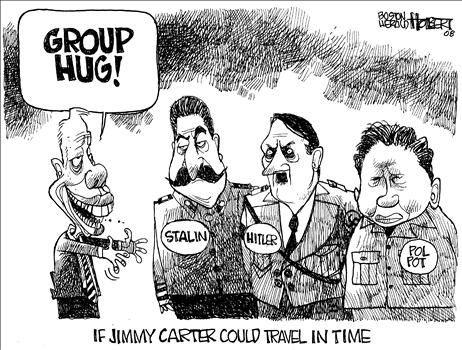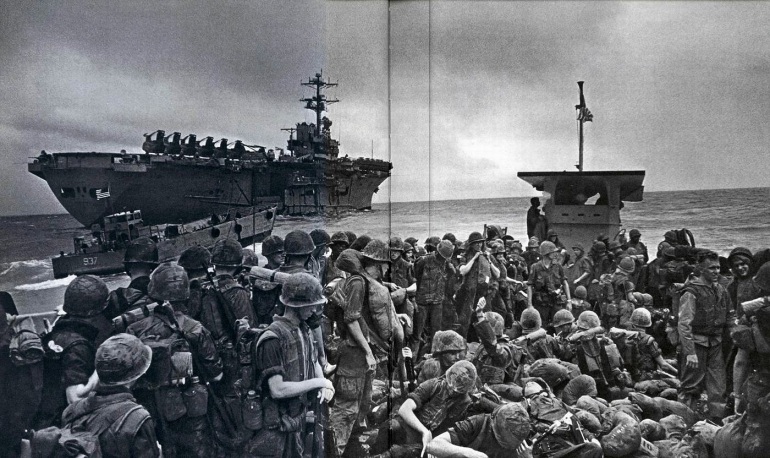Theodore Roosevelt was born in New York City; he was sick throughout most of his childhood, which did not allow him to do certain things. Once he got older, however, he was able to participate in any activities he wanted to take part in due to the fact that he gained strength over the years. During the time he attended Harvard, he learned the idea that a life of service was a virtuous life.
When Theodore Roosevelt was President of the United States, he created the Food and Drug Administration which made sure that food in general were healthy. The Square Deal also helped the poor and needy people. He then added the Roosevelt Corollary to the Monroe Doctrine, which said that the United States would get involved if the European countries attempted to invade Central and South America. Roosevelt formed the Progressive Party in order to get elected once more and make some more changes.
Roosevelt attempted to make change within the lower class society in order to give them more opportunities. He was the president that stuck by the side of the working class. He threatened the owners of the companies if they were to hurt the working class. He introduced a sense of duty within the Americans to offer help the other countries.
Woodrow Wilson
Woodrow Wilson was a big fan of reading in his younger days before he became the president. He attended and graduated from Princeton, receiving a Ph.D.He then became the university president. Before his accomplishment in becoming the university president, he was once a university teacher. He also created the idea of Moral Internationalism while he was involved in his academics.
Wilson's idea of Moral Internationalism was that the United States owed it to themselves and other countries to be involved in foreign affairs due to their power and wealth. It also believed that freedom and democracy should be brought to other places as well. He created the 14 points, which were basically the 14 ideas that wold keep a progressive place plan. He also attempted to pass the Treaty Of Versailles, which was right after World War 1.
Wilson attempted to make change through the Moral Internationalism and the League of Nations. The Moral Internationalism was intended to encourage the nation become more politically involved in affairs taking place all around the world. That exposed the people to realize other people's realities and problems. The League of Nations was a part of the 14 points, which allowed that people get together from all over the world to fix issues.
Ida Tarbell
Ida Tarbell was born in Pennsylvania in 1857 to a family of teachers and farmers. She attended high school right after Rockefeller acquired her father's business; she was then able to graduate from Allegheny College. She was actually the first woman to attend and graduate college. After receiving her chemistry degree, she went on and became a teacher in Ohio.
After leaving her job, however, she became a writer. She would write investigative journalism pieces. Due to the fact that she wrote a biography on Madame Roland she took a job at McClure's magazine. She then became the main writer and editor after she wrote the 10 part series of Abraham Lincoln. She also wrote a 19 part series on the life and business of oil tycoon Rockefeller in order to expose the corrupt business deals that had cost her father and other farmers their land.
Tarbell was a muckraker, meaning she wrote facts which in turn exposed the truth. That is how she had exposed the corruption of the oil company. Her writing led to an investigation of the Standard Oil Company and its disbandment into six different companies, effectively ending Rockefeller's reign.
Robert La Follette "Fighting Bob"
Robert La Follette was born in Wisconsin in 1855. John D. Rockefeller was the second oldest of a group of six children to a farming family in upstate New York City; he attended school and after high school went to the Folsom Mercantile College and finished a bookkeeping course. He began to work as an assistant bookkeeper at the Hewitt and Tuttle Firm. After many promotions, Rockefeller formed his own business with a partner, later turning it into an oil refinery business, renaming it Standard Oil.
He created the ideas of initiative, which was the ability of citizens to make and pass a law without help of legislature, and referendum, which was the ability to end an elected official's time in office before the next election. He also began The Wisconsin Idea to try to give the government back to the people and give America more of a direct democracy in order to take away power from the corrupt elite (corporations and parties). La Follette also ran and was elected Senator of the state of Wisconsin; he was one of the few that went against Wilson's declaration of war, openly speaking against it in public speeches.
La Follette was open to speaking his opinions whether or not they were deemed necessary or even wanted; he was especially prone to making speeches which gained him many enemies; these speeches made him susceptible to being accused of treason. He also felt that both natural born and immigrants alike had a duty to keep on the values that drove the American spirit during the country's revolution days. Everyone had a right to speak their mind.
Eugene V. Debs
Eugene V. Debs was born in a German family in Terre Haute, Indiana; life as an immigrant was difficult, yet their knowledge was as vast as the family library. His family opened a general store and later became trusted members of the community; after finishing high school, Debs went to work at the Union Pacific Railway, but left the dangerous job to do union work and became a union activist.
After creating the American Railway Union, he ventured far and wide to gain rights for workers, even opening a publishing company to get the voices of the workers and their situation heard. He and the ARU stood behind the Pullman Strike and gave the workers their support, although Debs was jailed for having been involved. The Great Railway Strike was one of his proudest moments, giving all he had into helping the workers earn their rights.
Debs was a progressive reformer at heart, from his creation of the ARU to his endorsement of the Women's Suffragist Movement. He even continued his talks and motivation while he was in jail, uplifting the jailers and prisoners alike. He died in his home in Terre Haute after having met President Harding on an invitation to the White House.
John D. Rockefeller
John D. Rockefeller was the second oldest of a group of six children to a farming family in upstate New York City; he attended school and after high school went to the Folsom Mercantile College and finished a bookkeeping course. He began to work as an assistant bookkeeper at the Hewitt and Tuttle Firm. After many promotions, Rockefeller formed his own business with a partner, later turning it into an oil refinery business, renaming it Standard Oil.
Rockefeller was a master at monopoly, meaning he was in control of all the oil in the Ohio region with no competition. He also learned how to control the means of production, completely dominating the oil business and every part of production. Predatory pricing was also a useful method of his; he would lower his prices to less than his competitors, and when he bought them out, the prices skyrocketed with no other place to buy his product as he was the only producer.
Rockefeller's business endeavors soon came to an after interference with muckracker Ida Tarbel and her infamous 19 part series of his life and corrupt business. His company was forced to break up into six different companies, effectively ending his reign. He became a philanthropist, and gave his money away to may organizations until his death in 1937.






